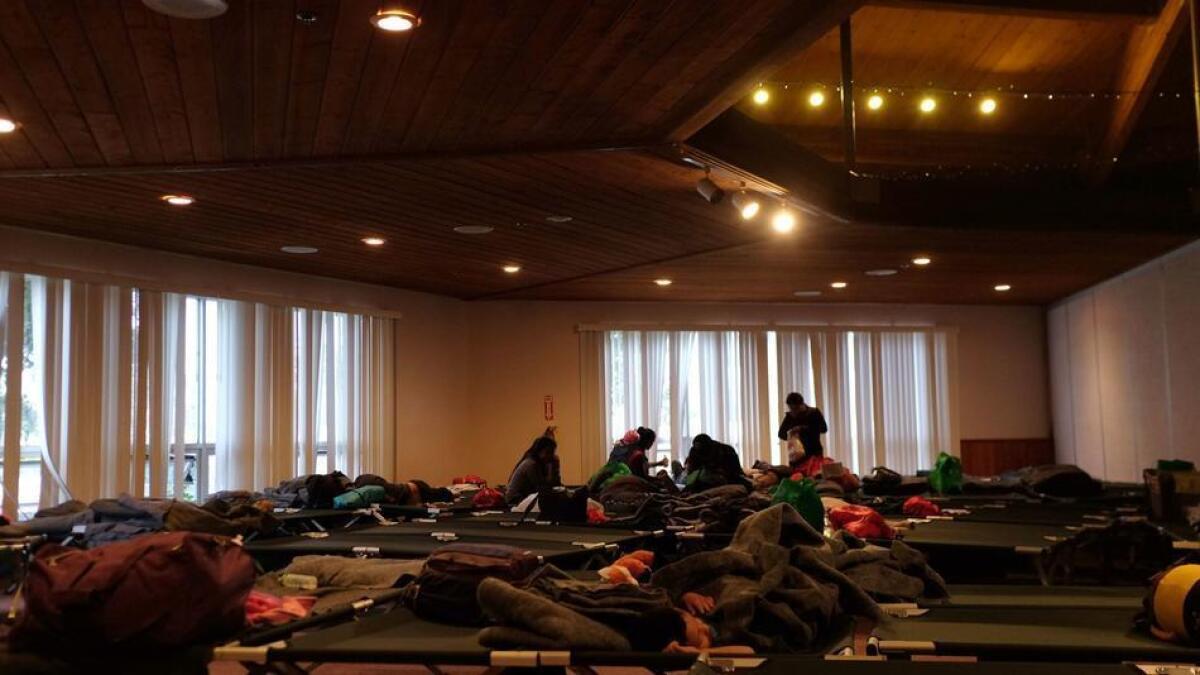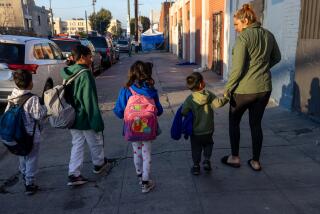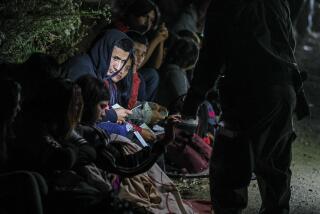Aid groups struggle to house asylum-seeking migrants in San Diego

Reporting from San Diego — The federal government is dropping off migrant families at Greyhound bus stations throughout San Diego, and local humanitarian organizations don’t have enough space or resources to care for them.
On Wednesday, the San Diego Rapid Response Network — a coalition of human rights, service and faith-based organizations — asked for local and regional representatives to help them secure a permanent shelter for these migrant families while calling attention to a GoFundMe campaign with a goal of raising $150,000. The families are seeking asylum in the U.S.
“We can no longer do it alone,” said Norma Chavez-Peterson, executive director of the ACLU of San Diego and Imperial Counties.
The campaign, which started Nov. 15, has raised close to $95,000.
Since Oct. 25, about 1,700 migrants have passed through the network’s emergency shelters. Because the coalition doesn’t have a permanent location, the shelter has had to move five times in the last six weeks.
None of the asylum seekers served so far are from the Central American migrant caravans that began arriving in Tijuana in November.
The emergency shelter gives families a place to stay, usually for about 48 hours, while they coordinate travel and living arrangements with relatives. It costs about $350,000 a month to maintain, said Chavez-Peterson.
The Rapid Response Network set up the emergency shelter when the federal government announced the end of its so-called Safe Release program, which gave migrant families seeking asylum a couple of days to locate friends or family members in the U.S. and make arrangements to unite with them.
On the night of Oct. 25, a person called the Rapid Response Network’s 24-hour hotline to report seeing a Department of Homeland Security van drop off about 30 migrants at a Greyhound bus station in downtown San Diego, Chavez-Peterson said.
Since then, about 200 volunteers spent two weeks visiting Greyhound stations in El Cajon, San Diego and San Ysidro to pick up more asylum-seeking families. Four weeks ago, the federal government began coordinating drop-off schedules with the coalition.
Members of the coalition were scheduled to meet with representatives from the city and county of San Diego on Wednesday. They are asking for funding and for a permanent shelter, or at least for the next three months, with enough capacity for 200 people.
If government or civil leaders don’t step up to help fund the coalition, hundreds of migrant families will have nowhere to go, Chavez-Peterson said.
“If the organizations hadn’t stepped in we would’ve had 1,700 people out in the streets of San Diego in the last six weeks,” she said.
More to Read
Sign up for Essential California
The most important California stories and recommendations in your inbox every morning.
You may occasionally receive promotional content from the Los Angeles Times.









